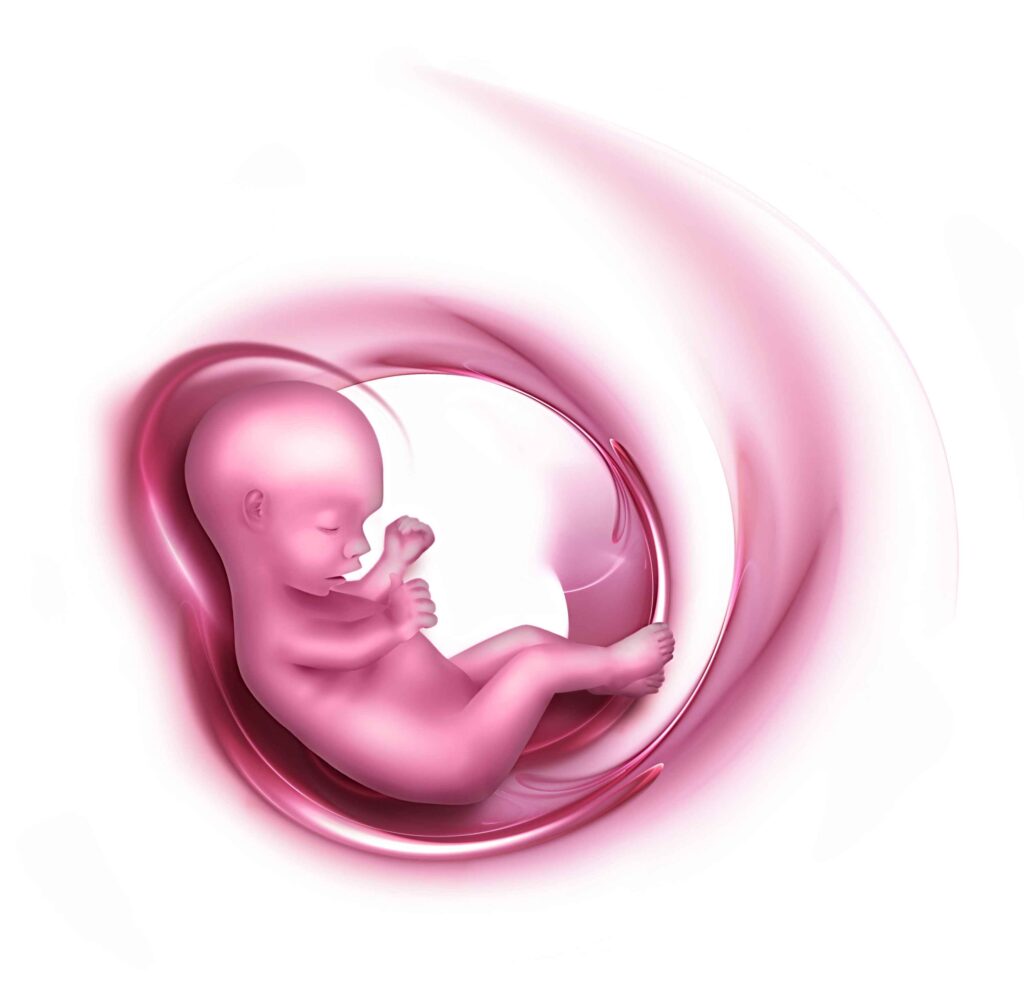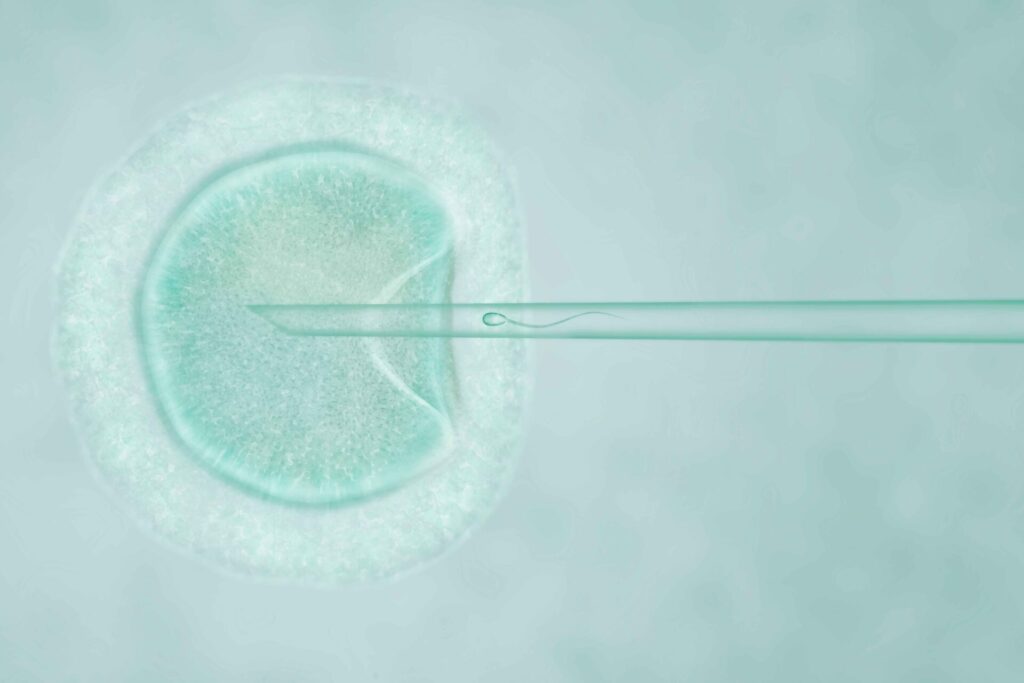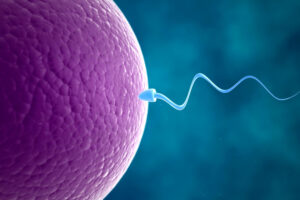Understanding how a baby starts to grow from a tiny cell is important for parents-to-be—especially those going through fertility treatments like IVF. This complex biological process transforms a single fertilized cell into a developing fetus over just a few weeks. In this guide, we’ll break down the four primary stages of embryonic development, helping you grasp the beauty and science behind how life begins.
Why Learn About Embryonic Development?
Whether you’re trying to conceive naturally or through IVF, understanding the stages of early development gives you:
- Awareness of what’s happening inside your body
- Confidence in making informed health and lifestyle decisions
- Clarity about the pregnancy journey
- Emotional connection to your growing baby from day one
Let’s explore these four key stages: from fertilization to organ formation.
Stage 1: Fertilization and Zygote Formation (Day 0–3)
The first step in human development begins when a sperm fertilizes an egg, usually in the fallopian tube. This union forms a zygote, a single-cell organism carrying DNA from both the mother and father.
What Happens Next?
- Within 24 hours, the zygote begins to divide—a process called cleavage.
- The cell divides into 2, then 4, then 8, and continues multiplying while travelling toward the uterus.
- Around day 3, it forms a morula, a solid ball of 16–32 cells.
For IVF Patients:
In IVF, this cleavage stage is monitored closely in the lab. Embryologists may assess embryo quality on Day 3 before deciding whether to proceed with a Day 3 or Day 5 transfer.
Stage 2: Blastocyst Formation and Implantation (Day 4–7)
Around day 4 or 5, the morula becomes a blastocyst, which has two main components:
- Inner Cell Mass (ICM): Becomes the embryo
- Trophoblast: Develops into the placenta
The blastocyst hatches from its protective shell (zona pellucida) and prepares for implantation into the uterine lining.
Implantation Highlights:
- Occurs around day 6–7 post-fertilization
- The trophoblast cells produce hCG, the hormone detected in pregnancy tests
- Successful implantation is crucial for pregnancy to continue
Clinical Note:
In IVF, doctors often prefer to transfer embryos at the blastocyst stage because they have a better chance of attaching to the uterus and starting a healthy pregnancy.

Stage 3: Gastrulation – Formation of Germ Layers (Week 3)
One of the most critical phases of development, gastrulation, occurs between days 16 and 21 after fertilization.
During this stage, the embryo transforms from a simple ball of cells into a structured form with three germ layers, each with a specific developmental role:
| Germ Layer | Becomes |
| Ectoderm | Brain, spinal cord, skin, hair |
| Mesoderm | Muscles, heart, bones, kidneys |
| Endoderm | Lungs, liver, digestive tract |
Gastrulation also marks the beginning of the body’s basic organization, including head-to-tail orientation and the early formation of the spinal cord via the primitive streak.
Why It Matters:
Problems during gastrulation can lead to developmental abnormalities, making this a key phase in healthy pregnancy.
Stage 4: Organogenesis – Building the Organs (Weeks 3–8)
From week 3 to week 8, the embryo undergoes organogenesis, where all the major organs begin forming.
Key Milestones:
- Week 3–4: Heart starts beating; brain and spinal cord form
- Week 5: Limb buds appear (future arms and legs)
- Week 6–7: Eyes, ears, and nose begin to take shape
- Week 8: Organs like liver, kidneys, and lungs begin basic development
By the end of week 8, the embryo is approximately 1 inch long and has started resembling a tiny human. At this point, it is referred to as a fetus.
IVF Tip:
Although embryo development is carefully monitored up to day 5–6 in the lab, further growth occurs in the womb. Your IVF specialist may perform early ultrasounds between week 6–8 to confirm heartbeat and developmental progress.
What Comes Next? The Fetal Stage
After week 8, embryonic development gives way to the fetal stage (week 9 onwards), where:
- Organs mature and start functioning
- Facial features become more defined
- Bones harden and limbs grow
- The fetus gains weight and prepares for life outside the womb

Embryonic Development Timeline Overview
| Timeframe | Developmental Events |
| Day 0–3 | Fertilization, Zygote, Cleavage |
| Day 4–7 | Blastocyst Formation, Hatching, Implantation |
| Week 3 | Gastrulation, Germ Layers Form |
| Weeks 3–8 | Organogenesis, Heartbeat, Limb Buds, Organ Primordia |
| Week 9 onward | Fetal Stage, Growth, Maturation |
Frequently Asked Questions
1. When does implantation occur after IVF transfer?
Implantation usually happens 6–10 days after ovulation, or 5–7 days post embryo transfer in IVF.
2. Can I feel anything during implantation?
Some women report mild cramps or spotting, known as implantation bleeding, though many feel nothing at all.
3. Why is the 8-week mark so important?
It marks the end of embryonic development and the start of the fetal stage, where miscarriage risks begin to decline.
4.Is embryonic development different in IVF pregnancies?
The stages of embryonic development are biologically the same in IVF and natural pregnancies. However, in IVF, early development is monitored in a lab until the embryo is transferred to the uterus, offering more insight into the embryo’s quality and growth.
5. How can I support healthy embryonic development during early pregnancy?
You can support your baby’s development by taking prenatal vitamins (especially folic acid), maintaining a healthy diet, avoiding alcohol and smoking, managing stress, and following your doctor’s guidance closely.
6. What if an embryo doesn’t implant during IVF?
Failed implantation can happen due to various reasons such as embryo quality, uterine lining issues, or immune factors. Your fertility specialist may recommend additional tests (like ERA, hysteroscopy, or genetic screening) and modify your treatment for the next cycle.
Final Thoughts from Boon IVF
The journey from a single cell to a developing fetus is nothing short of miraculous. Understanding the four stages of embryonic development—Fertilization, Blastocyst Formation, Gastrulation, and Organogenesis—can help you feel more confident and connected throughout your fertility or pregnancy journey.
At The Boon IVF, we support you through every step, offering:
- Personalized fertility consultations
- Expert embryology monitoring
- Transparent IVF packages with no hidden costs
- Emotional and educational guidance
Whether you’re starting IVF or confirming a natural pregnancy, knowing how life forms inside your body is the first step in creating a healthy beginning for your baby.


